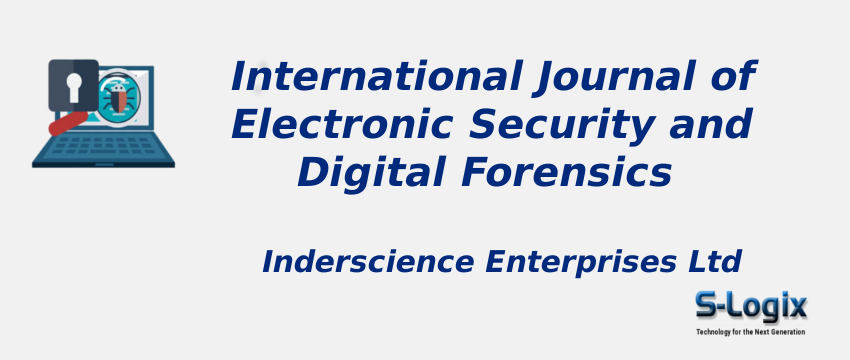IJESDF aims to establish dialogue in an ideal and unique setting for researchers and practitioners to have a knowledge resource, report and publish scholarly articles and engage in debate on various security-related issues, new developments and latest proven methodologies in the field of electronic security and digital forensics. This includes the measures governments must take to protect the security of information on the Internet, the implications of cyber-crime in large corporations and for individuals, vulnerability research, zero day attacks, digital forensic investigation, ethical hacking, anti-forensics, identity fraud, phishing, pharming, relevant case studies, and best practice for tackling cyber crime.
Journal Home: Journal Homepage
Editor-in-Chief: Prof. Hamid Jahankhani
scope: Computer/mobile device/network/software forensics, anti-forensics Digital,testing/approvals for forensic tools Crime scene/search and seizure processes, criminal investigation of mobile devices Investigative techniques, judicial processes, legal/ethical issues, cyber crime legislations Digital and physical surveillance, digital image manipulation Cryptographic algorithms/protocols, steganography, hidden data
Print ISSN: 1751-911X
Electronic ISSN: 1751-9128
Abstracting and Indexing: Scopus
Imapct Factor :
Subject Area and Category: Computer Science,Computer Networks and Communications,Engineering,Safety, Risk, Reliability and Quality,Social Sciences ,Law
Publication Frequency:
H Index: 15
Q1:
Q2:
Q3:
Q4: Safety, Risk, Reliability and Quality
Cite Score: 2.2
SNIP: 0.562
Journal Rank(SJR): 0.177
Guidelines for Authors: International Journal of Electronic Security and Digital Forensics Author Guidelines
Publisher: Inderscience Enterprises Ltd.
Country: United Kingdom
